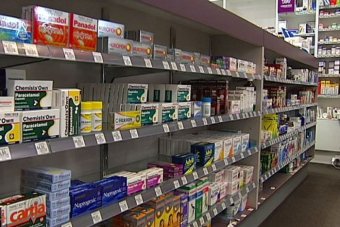General practitioners (GPs) at a national training conference in Hobart have swapped ideas about how to train doctors to deal with drug-seeking patients.
More than 550 doctors and other delegates are attending the two-day event.
One workshop looked at how to train GPs to best care for patients who are trying to use doctors to access addictive prescription medications like morphine and oxycontin.
Medical educator Genevieve Yates said it was a common problem, especially for young doctors.
“The reason being is that those that are seeking medications will often deliberately pick people they perceive as easy targets – those that are junior, those that are new to an area – and it’s a problem that general practice trainees struggle with a lot about how to best manage these requests,” she said.
Dr Yates said those types of patients changed the doctor-patient relationship because they were addicts seeking their fix instead of medical help.
“This kind of patient is a huge challenge because what they’re asking for is actually not in line with what’s best for their health and it actually makes junior doctors feel a bit like drug dealers really,” she said.
It’s a bit like they’re coming to us wanting to get the medication to get their fix, so to speak.
Genevieve Yates
“It’s a bit like they’re coming to us wanting to get the medication to get their fix, so to speak, and it changes the relationship, so they’re not coming to us because they want our help, they’re coming because they want a prescription for medication because they are addicted to that substance.”
Dr Yates emphasised that it was not all patients on addictive medications who had inappropriate motives.
“But it’s trying to work out whether someone is coming for genuine reasons about wanting to actually manage their problem or whether they are coming to us merely because we are the access to getting medication,” she said.
Dr Yates said the predominant form of drug that was targeted was opioids.
“So that’s the morphine type medications, there also are benzodiazepine medications which are tranquilisers, but the most common form are things like morphine, oxycontin and endone,” she said.
“Certainly they’re all drugs of addiction and usually either tranquilisers or opioids, very strong painkillers.”
Strategies help to support young doctors
Dr Yates said a large contingent of conference delegates attended the workshop.
“The take home messages that we got out of the group, for junior doctors there are several strategies that are needed to try to manage this and help junior doctors manage these patients,” she said.
“The first thing is to try to get systems in place that will help them be able to say no patients.
The first thing is to try to get systems in place that will help them be able to say no to patients.
Genevieve Yates
“One of the big challenges is actually trying to say no to someone, you want to try to please people and help them and saying no is very hard so having things like practice policy about what can and can’t be prescribed on first visits is a really important strategy.
“Things like having rules for junior doctors such as if you have a patient like this you must call your supervisor and get some help, you know, having strategies in place that they can get support.”
Dr Yates said it was also important to equip junior doctors with the skills to recognise that type of patient and offer support and alternatives to medication.
“There’s a lot of emotion around this type of patient, doctors can sometimes feel threatened, they feel vulnerable, they’re worried about their personal safety because sometimes patients can get very threatening if you decline to give them what they want,” she said.
“So that can be an issue and it’s a matter of trying to get an opportunity for them to debrief.”

